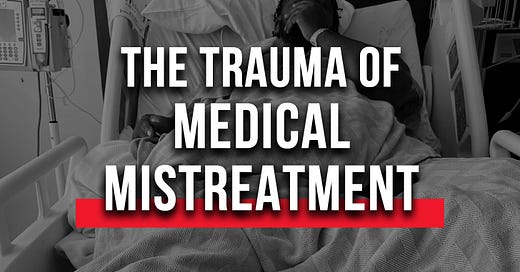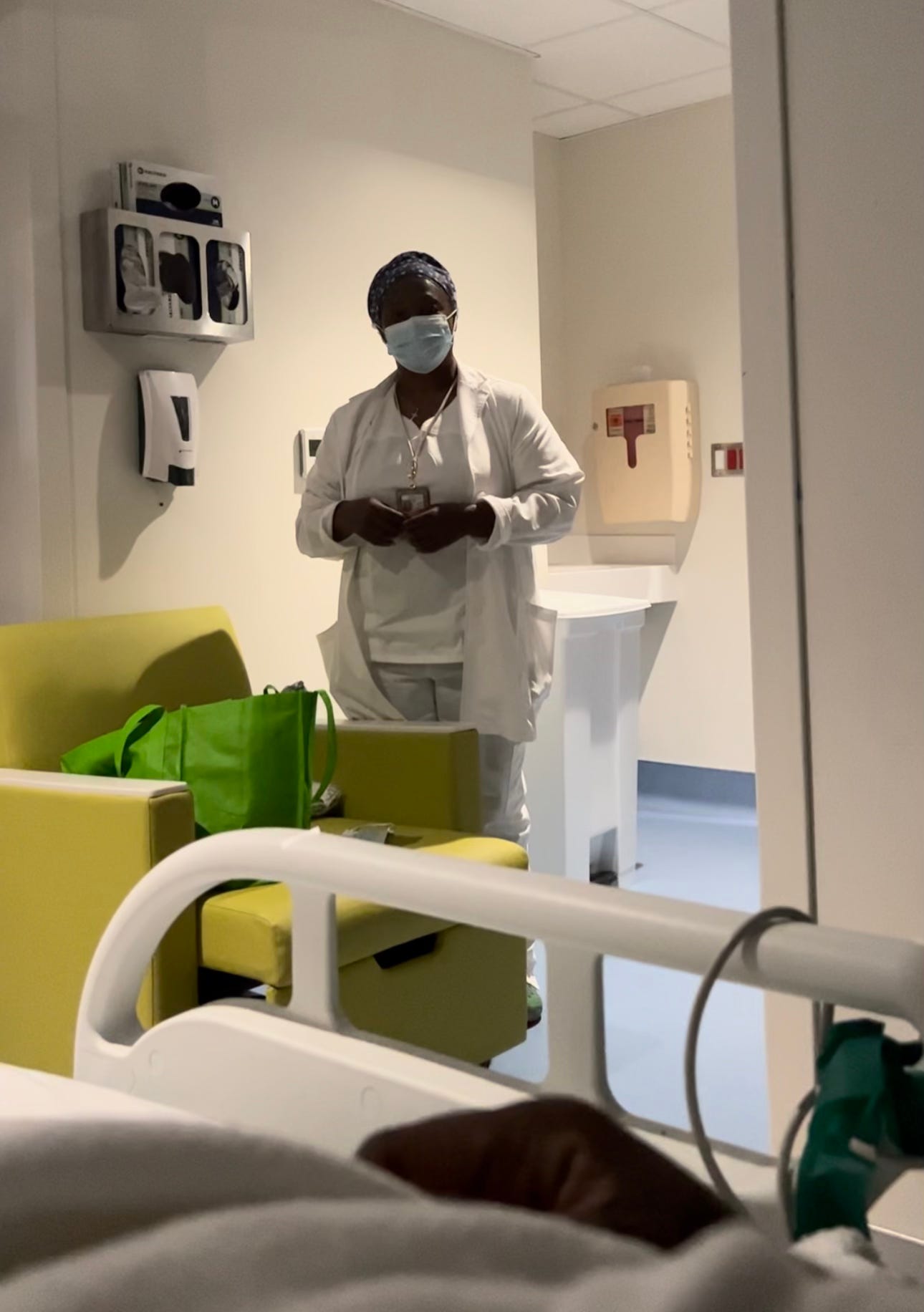It was my second day at Grady Hospital,1 and I was still in shock that I had just undergone a life-changing surgery that left me unable to walk.
That’s when a lab technician walked in and stared at me like I was an eyesore. I'll never forget how she looked at me because it was complementary to the screams I had heard the night before of people screaming for help and medication. After all, nurses were not responding to them, leaving people in pain—including me.
She walked around my room with a machine to take vitals and looked at the ground, noticing a bottle on the floor. Without picking it up, she looked at me and said, “So you just like to throw shit on the ground...”2 I was shocked while in pain.
This woman did not know me or even ask if I was having a good day or my pain level, but she found the strength to speak to me in a way that made me feel less than human while recovering from a significant accident.
No greeting. No, how are you? Just a curse word.

It was a crushing experience because I was dealing with the emotional grief of realizing that I would have to learn to walk again. At the same time, I was also facing the prospect of staying in the hospital for a while before being able to leave and be with my family in our home.
When the lab technician commented inappropriately, I spoke up for myself and said,
“What did you say to me? That is not appropriate.”
After a brief moment of self-advocacy, she responded, "I was just playing…"
Initially, I thought that perhaps the person was having a bad day, and I brushed it off. However, I soon realized this mistreatment wasn't isolated to just one individual working on the floor where I was located.
It was a part of the culture towards people who utilized that hospital, which was mostly those who were impoverished.
In the following days, things only got worse. I dealt with nurses who wouldn't give me my medication, missed meals, and even people hanging up on me when I called the help desk to report my pain.
All of these experiences led my wife on a quest to get the hospital director involved in addressing the mistreatment I was experiencing.
What hurt the most was hearing the screams of others who were being neglected and feeling that neglect. Having good insurance didn't matter. Being a community leader didn’t matter. All that mattered was that I was part of a community with a culture lacking compassion toward those needing care.
Throughout my time at the hospital, I couldn't help but think about the injustice in the healthcare industry toward impoverished people who need quality care and compassion.
As I write this, I can still vividly recall the screams of people who were left to suffer in agony, crying out for help all night, with no one responding to their calls.
It is a painful memory that serves as a reminder of how fortunate I was to have had the knowledge and ability to advocate for myself and the support of my wife and others who held the healthcare professionals accountable.
However, when mistreated, countless individuals lack the knowledge, resources, or support to self-advocate or demand proper treatment.
One night, a nurse3 purposely smeared his contact information from the board, making it impossible for me to reach out to him, resulting in me not receiving my pain medication for hours.
Only after my wife intervened the hospital director found the negligent nurse in his car, neglecting his duties.4
The trauma of healthcare mistreatment can have a lasting impact, especially on those who are poor and often met with apathy and disrespect. Being mistreated for being poor, black, or brown while in hospitals can have a profound and lasting impact on a person's mental health and well-being. The feeling of being dismissed, disrespected, and neglected can cause a sense of powerlessness, disempowerment, and loss of self-worth, which can be devastating for vulnerable individuals.
I know this firsthand, as I personally experienced the callousness of some healthcare professionals.
While at Grady Hospital, which has served Atlanta's low-income population for decades, I reflected on my experiences and the countless others who have faced similar mistreatment; I recognize the importance of speaking up and advocating for change.
It is crucial for healthcare providers to recognize and address these issues to ensure that everyone, regardless of their economic status, receives the care they need with dignity and respect.
I still do not understand why God allowed me to experience this, but I know I will use my experience to advocate for more compassionate healthcare settings for low-income and impoverished individuals.
As the first anniversary of my car accident approaches in four days, I have a range of emotions. On the one hand, I am grateful to be alive and able to function. On the other hand, I am still grieving the mistreatment I endured.
May my story provide insight into how people can experience mistreatment in hospitals and shed light on the lack of empathy and care for people experiencing poverty and homelessness in hospitals across the country, which is a widespread issue.
This mistreatment can make people feel disrespected, powerless, and worthless. It must be changed because the trauma from medical mistreatment is real and often hidden.
May 16, 2022.
These were her exact words while I had level 10 pain.
The picture above is of the charge nurse who came to address my nurse for not giving me my medication and then lying about it.
This unacceptable mistreatment and negligence can lead to physical and emotional scars that last long after leaving the hospital.




